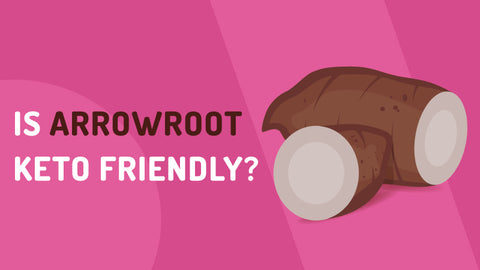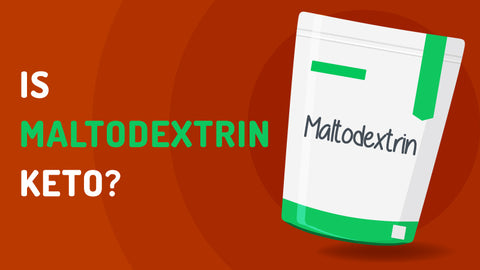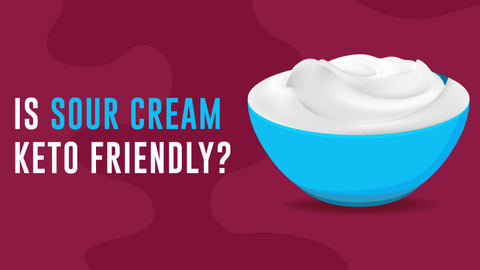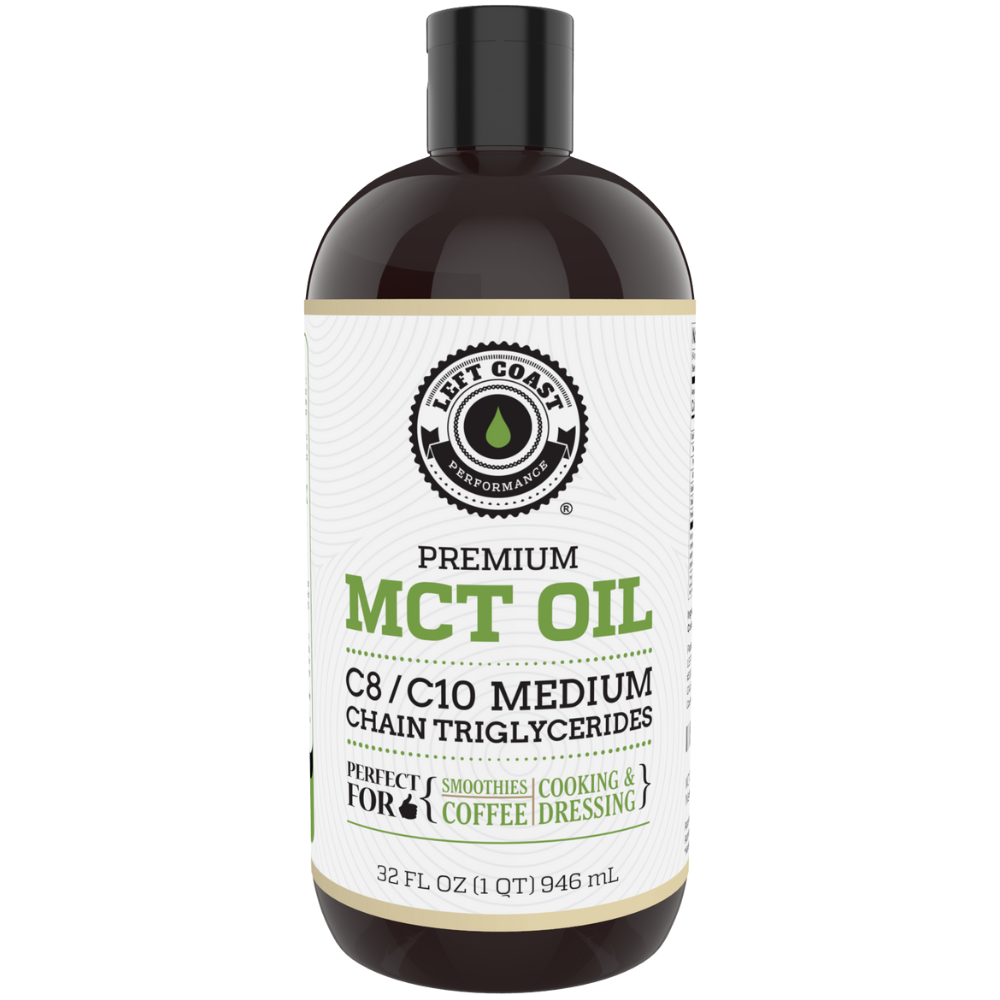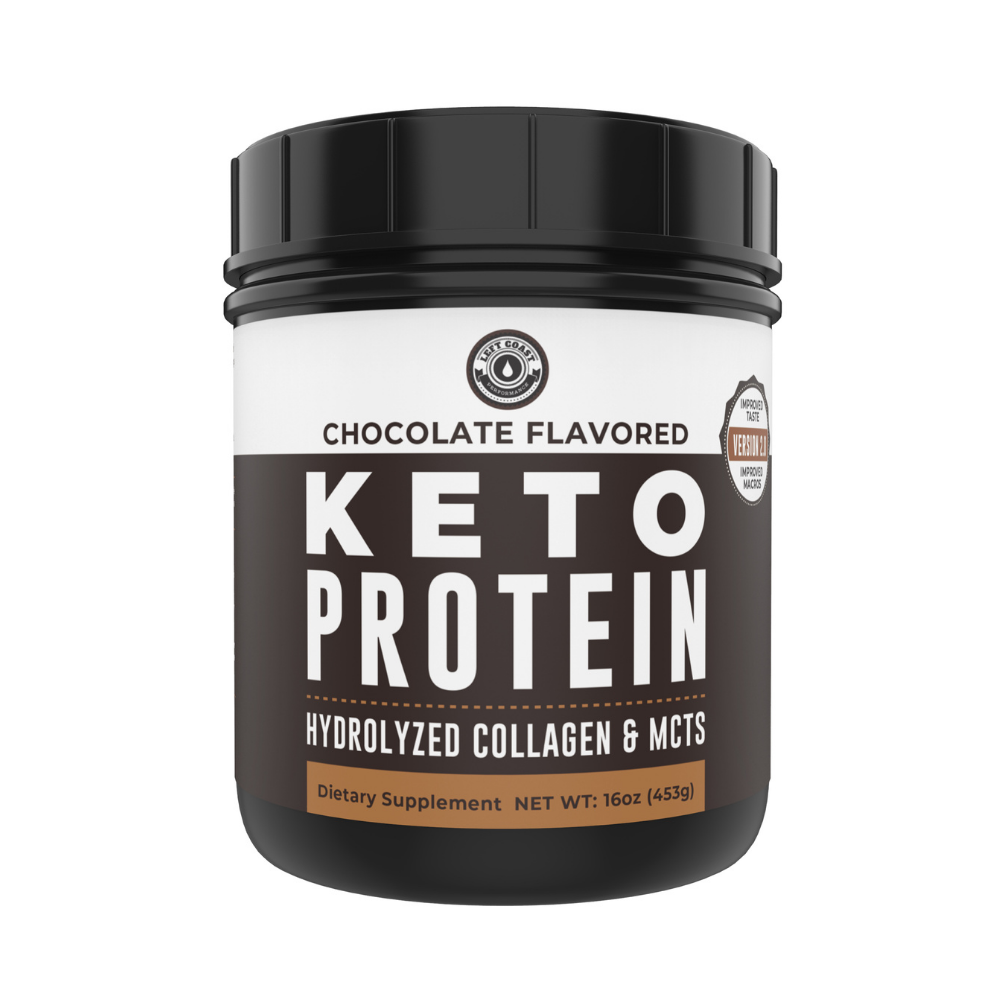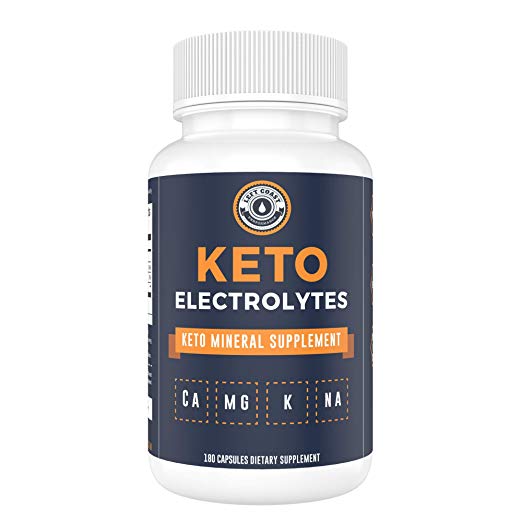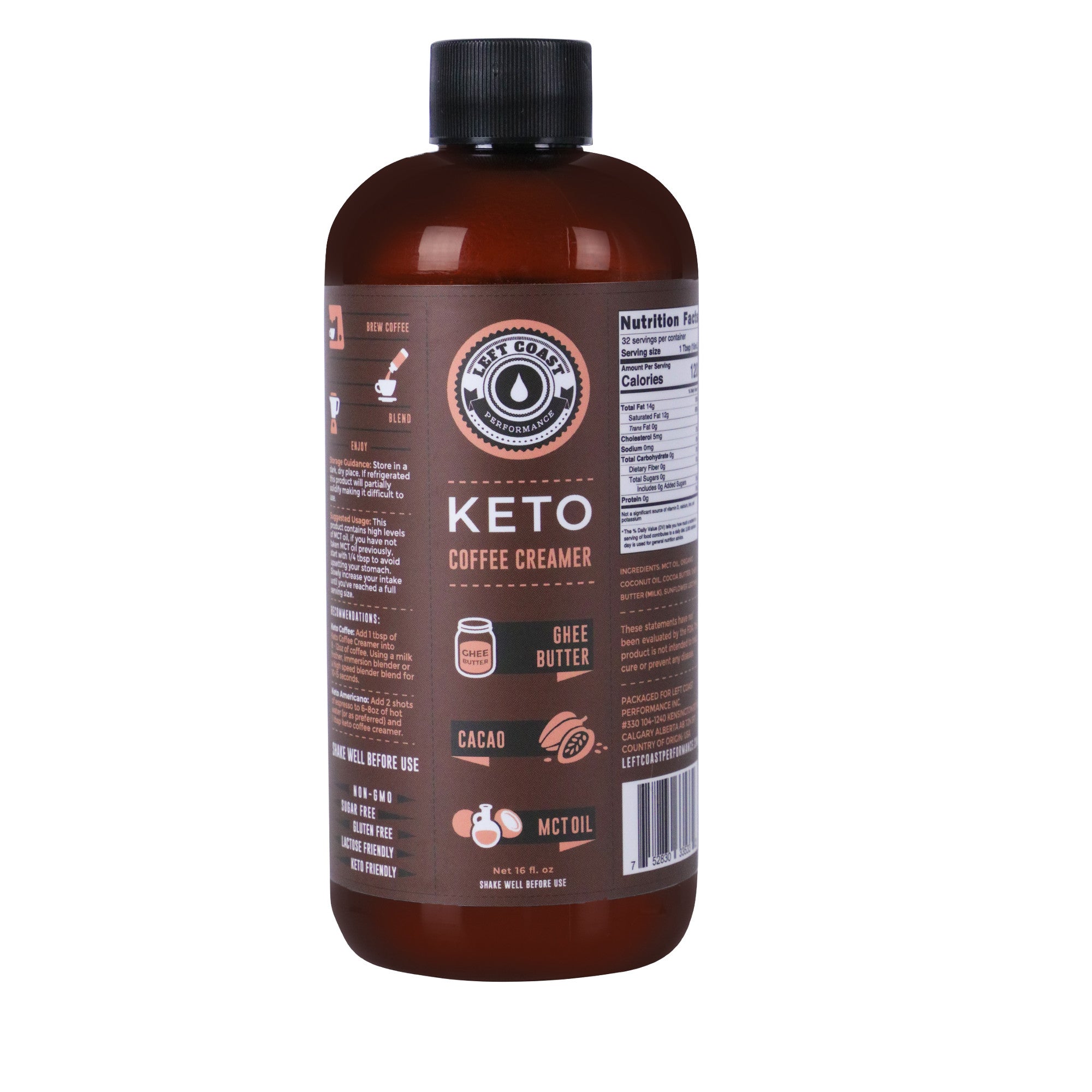Keto Protein Shakes: How & Why to Make Them
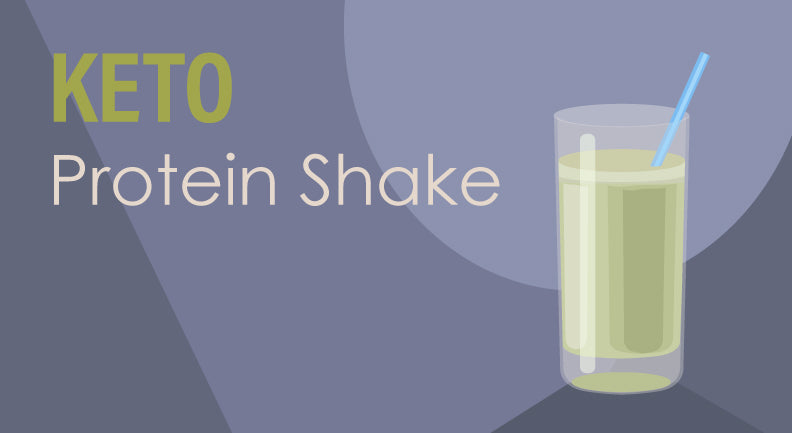
on July 03, 2019
Protein is an important building block within the body. It’s helpful in repairing damaged cells, forming new ones, and warding off bacteria and viruses. It builds muscle mass, gives us energy, and when eaten in the right quantities, can aid in weight loss.
It’s no wonder that protein shakes have become all the rage. They’re not just for body builders anymore; anyone looking to supplement the amount of protein in their diet can turn to shakes for swift and efficient protein delivery, including people following a ketogenic diet.
The key to marrying protein shakes with a ketogenic diet lies in choosing ingredients that are healthy and taste great but that won’t overload you with carbs. Read on to learn more about the keto diet and the best protein shakes to drink while following it.
How Does the Keto Diet Work?
The ketogenic diet is one of many diets structured around a low carbohydrate intake. While most people get the majority of their energy from carbs, this comes at a cost. Carbohydrates--especially refined ones--are linked with weight gain, increased risk of diabetes and heart disease.
The keto diet, on the other hand, replaces all but a small number of carbs with fats and protein. Though it might sound counterintuitive to consume more fats, the fats eaten in the keto diet are high quality, healthy sources like monounsaturated and polyunsaturated fats, along with lean proteins to aid in weight loss and deliver a host of health benefits.
So how does the ketogenic diet work, exactly? Of the three macronutrients in the body (carbohydrates, proteins and fats), the body’s default mode is to rely first on carbs for energy, as we mentioned above. But when we restrict our carb intake, we prompt the body to turn instead to fats for fuel. This is what’s known as ketosis.
In ketosis, the body burns fat to produce ketones, which can be used as fuel. This typically occurs after three to four days of consuming fewer than 50 grams of carbs per day.
In addition to helping you lose weight and maintain muscle, research suggests following a ketogenic diet may be linked with a lower risk of heart disease through lower cholesterol and can lower the markers associated with metabolic syndrome and type 2 diabetes. It has also been studied as a tool for fighting everything from acne to Alzheimer’s disease.
Keto and Protein
We’ve talked a lot about carbs and fats thus far, but what about the other important component of the ketogenic diet: protein?
On a standard ketogenic diet, followers should aim for a nutritional composition of 75% fat, 20% protein and just 5% carbs. This amounts to about 0.7 to 0.9 grams of protein per pound of body weight, per day.
There are several instances where you may want to supplement the amount of protein you’re getting from foods, like if you exercise heavily, are looking to build muscle mass, are recovering from an injury or simply have trouble consuming enough protein through your diet alone. For this, protein shakes can be very useful.
The problem with regular protein shakes, though, is that in addition to protein, they’re usually packed with carbs like fruit and oats--not ideal for a keto dieter. Even some protein powders are overloaded with carbs. So in order to consume protein shakes and stay in ketosis, you’ll need to pick your ingredients wisely.
Picking the Right Keto Protein Powder
The most common type of protein powder used to beef up the protein count in shakes is whey protein. You’ve probably seen it in those large plastic containers at your favorite nutrition store. While a single serving of whey protein won’t throw your daily carb count overboard, it’s not the best powder to use as the base for keto-friendly protein shakes.
A typical serving of whey protein contains about five to six grams of carbs and 20 grams of protein. Remember, on the keto diet you want to get anywhere from 0.7 to 0.9 grams of protein per pound of body weight, per day. For many adults, that amounts to consuming 100 grams of protein or more per day.
Do the math and you can see how the carbs will quickly add up if you’re using whey protein to make up a significant portion of your daily protein intake. For keto followers, there are better options.
Plant-based protein powder
Try a plant-based protein powder like Amazing Grass Protein Superfood, which contains 20 grams of protein and just one gram of net carbs per serving. This protein powder is organic and made from farm-fresh greens.
Collagen
Collagen is a protein found in bones, muscles, skin and tendons. A collagen powder like Left Coast’s Vanilla Bone Broth Powder is rich and protein and while being dairy free, soy free, grain free, and gluten free. One serving of this powder packs 19 grams of protein and just 3.5 grams of carbs.
Keto-friendly whey protein
There are some formulations of whey protein created to be keto-friendly. These will help you fuel up on protein without creeping up on your carb counts. Just do your research before you buy, as some whey proteins that claim to be keto-friendly are spiked with cheap fillers that will artificially raise protein levels without actually providing quality nutrients to the body.
Adding Healthy Oils or Fats
In a traditional protein shake, that smooth, creamy texture is usually the result of adding carbs like oats or dairy milk. To add some texture without piling on the carbs in a keto-friendly shake, you’ll want to add some healthy oils or fats instead. Remember, a standard keto diet is made up of 75% fats, so this is also a great way to fuel up.
Here are some healthy fats to add to your low-carb smoothie.
Coconut oil
Coconut oil is one of the best fats for keto dieters because it’s rich in medium chain triglycerides, or MCTs. MCTs are fatty acids that are shorter than other fats. When you eat them, they go straight to the liver where they can be immediately used for energy, much like carbs but without the unwanted side effect of pulling you out of ketosis.
Grass-fed butter
As you probably know, butter is made from the cream of cow’s milk. So, what the cow eats makes a significant difference in the quality and makeup of the milk which, in turn, impacts the quality and nutritional value of the resulting butter.
Grass-fed butter is rich in healthy, complex fats that are a staple of ketogenic diets, along with omega-3 fatty acids and fat soluble vitamins. And the best part? It contains virtually no carbs.
Avocado
There’s a reason avocados are hailed as a superfood. They’re packed with heart-healthy monounsaturated fats and contain nearly 20 different vitamins and minerals. Plus, they taste good with just about anything and their creamy consistency is great for protein shakes. A single serving (about a third of an avocado) contains just one gram of net carbs.
Almond butter
Almond butter is peanut butter’s healthier, keto-friendly cousin. Its nutty, naturally sweet flavor makes it the perfect addition to thicken your protein shake.
Be sure to read the label, though, as many almond butters disguised as “healthy” can actually be loaded with sugar. Look for one with as few ingredients as possible and specifically keep an eye on the sugar content.
Watch Out for Eggs
The egg might just be nature’s most perfect food. It’s low on calories and carbs, high in protein and filled with disease-fighting nutrients. For years many people avoided eggs or ate only the whites due to concerns about their association with cardiovascular disease, but recent studies have debunked these fears and the American Heart Association endorsed eggs as part of a healthy diet.
Some athletes and keto dieters hoping to capitalize on the egg’s amazing benefits have opted to crack raw eggs into their protein shakes. While eggs are certainly a wonderful source of protein, you’d be better served to bite into a hard-boiled one alongside your smoothie rather than tossing it in raw. Raw eggs pose a small but not insignificant risk for infection from Salmonella, a food-borne bacteria that can cause diarrhea, fever and vomiting.
2 Delicious, Healthy Keto Protein Shake Recipes
Cocoa Almond Low Carb Protein Shake
Ingredients
- 1 cup almond milk (look for one that’s low- or no-sugar) or your liquid of choice
- 1 tbsp cocoa powder
- 1 tbsp coconut oil
- 1 tbsp almond butter
- 2 tsp erythritol sweetener
- 1 scoop of your protein powder of choice
- Handful of ice cubes
Instructions
Add almond milk to blender. Combine all remaining ingredients and add to blender (placing your milk in first will help keep the rest of the goodies from jamming up the blade). Blend until smooth and enjoy.
Low Carb Strawberry Protein Shake
Ingredients
- ½ cup coconut milk
- ½ cup strawberries (other low-carb berries like blackberries work great too)
- 2 tbsp shredded coconut, unsweetened
- 2 tbsp walnuts
- 1 scoop of your favorite low-carb protein powder
- Handful of ice cubes
Instructions
Add all ingredients to blender, starting with the coconut milk. Blend until smooth. For an added crunch and some healthy fat, top with a handful of hemp seeds or chia seeds. Enjoy!
About Left Coast Performance
Left Coast Performance is an online retailer and educational resource committed to delivering ketogenic, low-carb and clean protein products at a direct-to-consumer price. The company offers only premium, clean label ingredients with no artificial flavors, artificial coloring or fillers. All orders come with free shipping and a 100% no risk money back guarantee. On the company’s blog, you’ll find informational articles on the ketogenic diet along with keto-friendly products, tips and frequently asked questions. Left Coast Performance is based in Calgary in Alberta, Canada. For more information on Left Coast Performance visit www.leftcoastperformance.com. You can also follow the company on Instagram.


